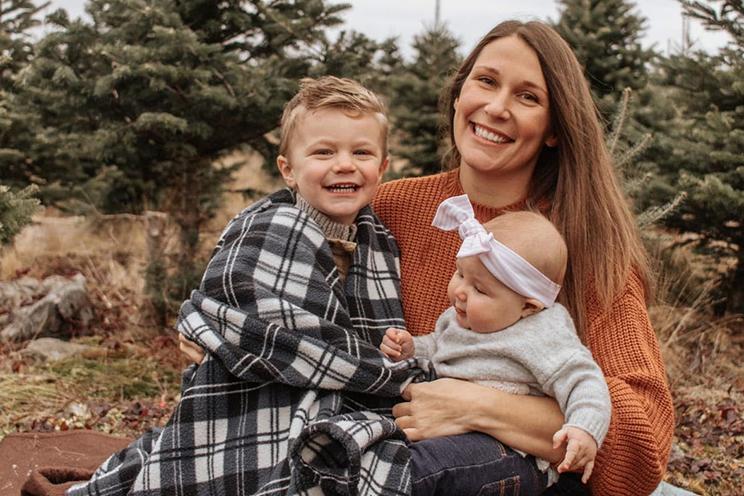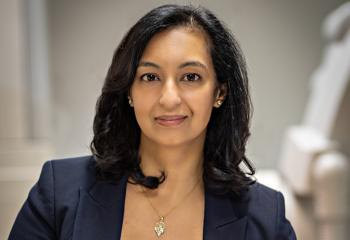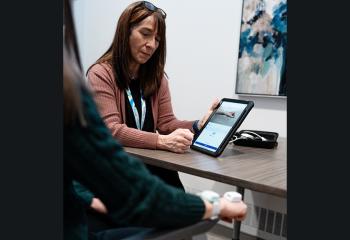
Erin Van Dusen, a carrier of Hemophilia B with low factor levels, became involved with the QEII’s Hereditary Bleeding Disorders Clinic prior to her first pregnancy in 2018. She says the expert staff do a wonderful job for people living with inherited bleeding disorders. CONTRIBUTED
Hereditary Bleeding Disorder Clinic at the QEII stepping up to offer special care
Hereditary bleeding disorders are a rare, complex and lifelong condition that add considerable challenges to people’s lives.
As a hematologist, Dr. Sue Robinson understood the many challenges bleeding disorder patients face and saw the need for a provincial clinic in Nova Scotia to better serve patients.
In 1989, she created the Hereditary Bleeding Disorder Clinic at the QEII Health Sciences Centre to keep patients out of the emergency room by providing them with the treatment they needed.
“Clinics had already started to be developed in Canada and we saw a need for one in Nova Scotia,’’ she explains.
As the only adult bleeding disorder centre in the province, the clinic has become essential to patients from Cape Breton to Yarmouth, as well as some in P.E.I. and New Brunswick. The clinic has grown immensely over the years, with an estimated 685 patients being seen or followed, including 150 or more on a regular basis.
The clinic’s three doctors and nursing staff provide a broad range of services including referrals, diagnosis, treatment plans, family testing, working with pregnant patients and women preparing for pregnancy, and partnering with other healthcare professionals to co-ordinate a safe plan for surgeries and procedures.
“I think we’ve done such a good job that these patients don’t go to the emergency room very often anymore,’’ says Dr. Robinson.
Although there are many types of hereditary bleeding disorders, she says the two most common are hemophilia and Von Willebrand disease. Nova Scotia has the highest rate of Von Willebrand Disease in the country.
A lot of advancements have been made in the field over the years, which Dr. Robinson says is exciting because people are living longer and with a better quality of life no longer centred around their bleeding disorder.
“With new advancements in treatment, we want to make sure they’re getting the best care.”
Hereditary bleeding disorder nurse co-ordinator Sue VanOosten says patients depend on the clinic team because their conditions are rare and often over-looked.
“They depend on us to be able to call, to be able to consult and I think a lot of them have come to the point where it’s a bit of security for them to know that we are here and that we do have the knowledge to be able to advise.”
She has been working to increase awareness of both hereditary bleeding disorders and the clinic for many years, determined to provide the best possible care to a patient population that is small and often flies under the radar.
“We want to get the word out that we are here, that there is this patient population, and they do require a little extra TLC because sometimes when they’re bleeding, it’s inward, not outward, and it often gets overlooked.”
Erin Van Dusen, a carrier of Hemophilia B with low factor levels, became involved with the clinic prior to her first pregnancy in 2018. The clinic has helped her in many ways, especially during her pregnancies.
“They send out blood requisitions at times when I question my iron levels due to low energy, follow-up with the results, provide prescriptions, and schedule iron infusions and factor replacement when I need it. The clinic staff has also been very helpful if I have any questions before travelling and have helped me navigate the emergency room,’’ shares the Middle Sackville teacher and mother of two.
She says the expert staff do a wonderful job advocating for people living with inherited bleeding disorders that are often misunderstood.
“I always feel that I get very personalized care there. I almost feel like part of the team or part of the family because they’re so welcoming.”
Although she had suffered from unusual bleeding most of her life, Tamu Bracken was 48 years old when she learned she has Von Willebrand disease.
“When I Googled it, I had every symptom,” she recalls. “It was an incredible shock.”
The diagnosis brought a lot of clarity for Tamu, who had long suffered from severe nosebleeds, clotting issues and terrible menstrual periods. Despite years of bleeding incidents, including one that could have been life-threatening, her condition went undiagnosed.
Her relationship with the clinic began after her diagnosis and her health has since improved.
She says the clinic has given her peace of mind, both in terms of herself and two of her three children who have also inherited the condition.
“I can’t say enough good things about the clinic. I just wish I knew about it when I was younger. I suffered a lot over the years and I could have had a better quality of life.”


